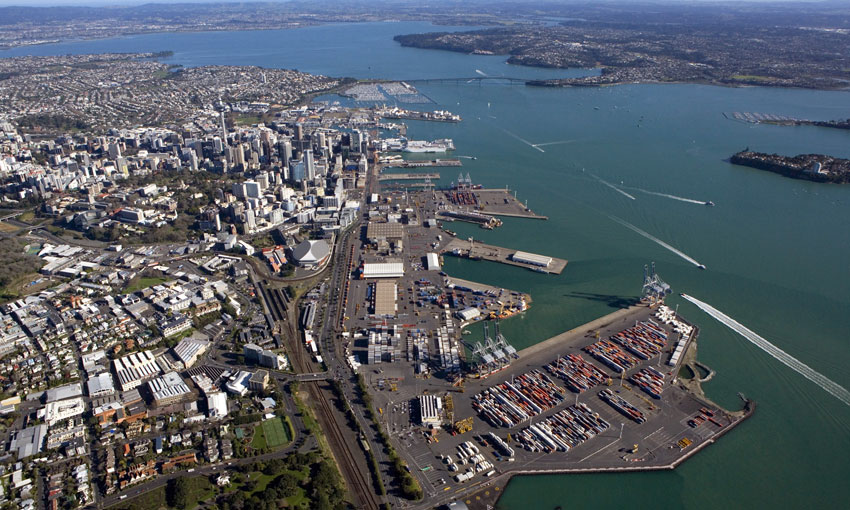PORTS of Auckland said it is acting to address shortcomings in safety processes and culture after it received the final version of a safety review carried out by Construction Health and Safety New Zealand (CHASNZ).
POAL commissioned the report following two fatal accidents at the port since 2018. In one accident, on 30 August 2020, a port worker was crushed by a container during cargo operations.
POAL said its board and management fully support the findings in the report.
Ports of Auckland chair Bill Osborne acknowledged that POAL could be doing more regarding safety.
“While I know that people who work at Ports of Auckland care deeply about safety and have worked hard over the years to improve it, the fact that we had two fatal accidents shows that we were not doing enough,” Mr Osborne said.
“Sometimes it is hard to see your own problems clearly, so we are thankful for the opportunity to have an independent expert team look at our safety management systems and safety climate with fresh eyes and without prejudice – CHASNZ have done that well. They have provided us with a road map to a safer future at a time when change is needed. This is a unique opportunity, and we will grasp it with both hands. “
Mr Osborne said POAL is already working on some of the recommendations in the report, and others will be actioned as soon as practicable.
He said two broad themes stood out in the report.
“One is that we need to make improvements to our safety management systems and controls to ensure work is always carried out safely,” Mr Osborne said.
“The second is that this work will only be successful if we can transform our company culture to create a strong safety climate. As the report states, ‘A highly resilient control environment requires a strong H&S climate at its foundation’.
“In this regard we must face a difficult truth: the relationship between the Maritime Union of New Zealand (MUNZ) and Ports of Auckland has been a barrier to improving safety.
“I would like to make it clear that the board and management of Ports of Auckland accept this finding and acknowledge our role in this relationship. We are committed to working with the leadership and members of MUNZ, in partnership with the other unions and staff of Ports of Auckland, to create an organisational culture which supports strong, positive safety outcomes.”
More focus on safety from leaders needed
Mr Osborne said the report identifies a need for an increased focus on safety from senior management and leaders.
“In particular the report says the chief executive needs to tackle the perception that productivity and profitability are more important than safety,” he said.
“We need to improve trust, communication, and engagement between executive management and frontline staff on health and safety, help change risky behaviours, and ensure the resources needed to make improvement are available.”
Mr Osborne said POAL accepts these points.
“The report sets out a clear roadmap which will be our guide as we work to fix these issues,” he said.
“A port is a high-risk environment which can only be made safe when there are good processes and practices in place, which everyone in the company understands, supports, and enacts. Safety is everyone’s responsibility, which is why company culture, and the safety climate is so important. The Board and management accept our responsibility and are committed to making the changes that this report shows are needed to deliver a safe workplace. We will report regularly to our people, to Council and the public about our progress on the recommendations in this report.”
Union calls for CEO to resign
Meanwhile, MUNZ has called for POAL CEO Tony Gibson to resign.
In a statement, the union said it is not credible, or morally acceptable, for him to remain in his job.
Maritime Union of New Zealand national secretary Craig Harrison said it is not right the CEO was being entrusted by the board to deal with problems he had failed over many years to resolve.
Mr Harrison said workers at the port did not accept Mr Gibson did not know what had been happening at POAL during his tenure.
“Following the death of swimmer Leslie Gelberger in 2017, we were told the CEO was going to sort out the problems. Following the death of LaBoom Dyer in 2018, we were told the CEO was going to sort out the problems. Following the death of Palaamo Kalati in 2020, we were told the CEO was going to sort out the problems,” Mr Harrison said.
“Now, following a report that condemns systemic health and safety failings at the Ports of Auckland, we are told the CEO is the person to fix the problems he didn’t fix before. “It is rubbish and no other employee in New Zealand would receive this special treatment.”

